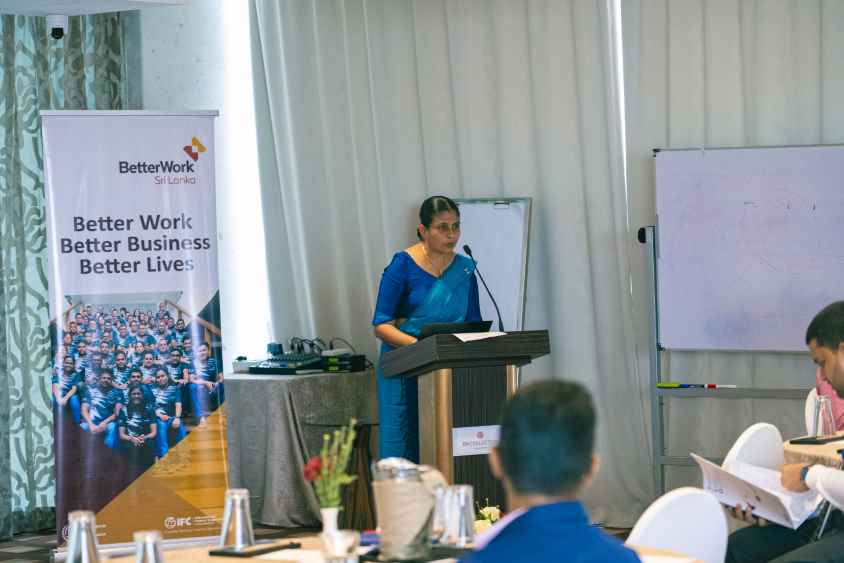
A diverse group of stakeholders from Sri Lanka’s apparel industry, vocational training institutes, the Department of Social Services, Vocational Training Authority, Tertiary and Vocational Education Commission, EFC’s disability resource centre, organizations for persons with disabilities and international development agencies convened recently at the NH Collection Colombo for a national workshop focused on validating an inclusive apparel manufacturing curriculum tailored for persons with disabilities (PwDs).
Titled Inclusive Threads: Validating Apparel Manufacturing Curriculum at Vocational Training Institutes, the workshop marked a key milestone in an initiative supported by the International Labour Organization (ILO) to promote inclusive skills development and decent work for all. The revised curriculum — centred on the Industrial Sewing Machine Operator (ISMO) course — aims to offer accessible, industry-relevant training that empowers PwDs to secure employment within one of Sri Lanka’s most vital export sectors.
The event opened with a welcome address by Darshani Karunarathne, Director of the Department of Social Services, who stressed the importance of inclusive curriculum design. “Skills training is the bridge to opportunity. For persons with disabilities, having access to industry-aligned courses can transform lives and open doors to sustainable livelihoods,” she said.
Representing the Joint Apparel Association Forum (JAAF), Indika Liyanahewage, Executive Committee Member, underscored the sector’s responsibility to lead with purpose. “For Sri Lanka’s apparel industry to remain globally competitive, we must ensure that no one is left behind. A curriculum that combines accessibility with market-driven skills is essential to building a future-ready workforce,” he noted. “As an industry that touches the lives of nearly a million Sri Lankans, we believe in growth that includes everyone. This initiative represents a powerful step forward in bridging opportunity gaps and ensuring that persons with disabilities have the tools and training to thrive. We are proud to support a future where inclusivity is not an aspiration — but a standard.”
The ILO, which has played a critical technical and facilitative role in the development of the curriculum, was represented through the involvement of Ms. Manoja Polwatte, an external collaborator to the organization. In her detailed presentation, she walked participants through the revisions made to the ISMO course — highlighting the integration of inclusive teaching methodologies, equipment adaptations, and structured pathways for learner progression.
Participants then engaged in group validation sessions, where trainers, apparel industry professionals, and institutional representatives offered constructive feedback and practical insights to fine-tune the curriculum before rollout. Discussions also focused on implementation plans, with Vocational Training Institute (VTI) representatives presenting their roadmap for introducing the ISMO course across selected centres in the coming months.
The workshop concluded with a collective commitment to driving the initiative forward, underpinned by a shared belief in inclusivity as a pillar of Sri Lanka’s development agenda.



